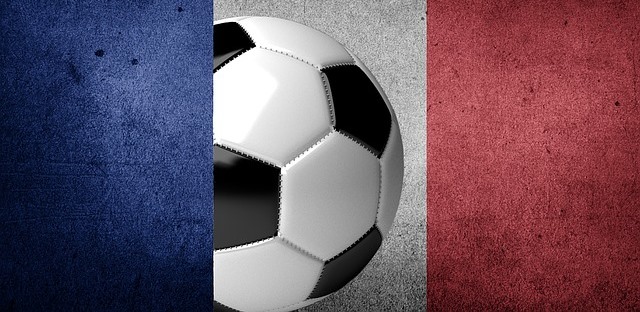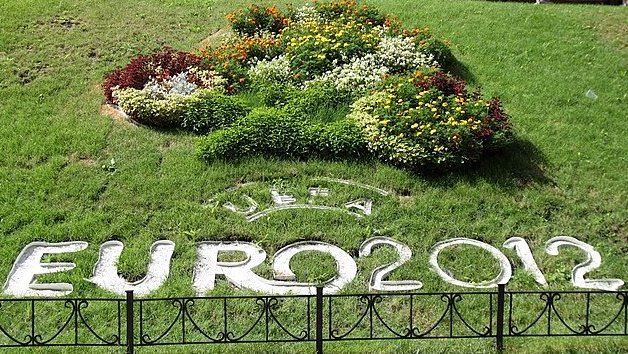Football tournaments are all about the victories, yes? Sometimes, they are, but at other times, they are about teams and players doing what they do best, playing football at the highest level, our matching their opponents and giving their teams the much needed victories, sometimes even trophies.
These victories mean a lot to the players, but imagine the viewers or even punters, seeing a team who everyone thought would lose, take over a match or even a tournament, to win everything. These matches make football great, as well as tournaments they are played in. Luckily, the European Championship history is full of such matches, dating back to the first European Championship.
The English Fans – Not the Kind You Want
The English have always, ALWAYS, been passionate about football. Some English fans have been so violent and unfriendly that they have had a large part in creating the term, hooligans, to describe some fans who go over the top and turn cheering into violence.
During the 1980 Euros, the English left the tournament early. They left the tournament feeling slightly disgraced. Oh, the players did their very best, as you come to expect from professionals, but the fans didn’t do their part the right way. They even led to a play suspension due to bad behavior.

The Netherlands Division – A Team Gone Wrong
During the Champions League of 1995, Ajax had a great showing. It being a Dutch team, it was also logical that some of the club’s stars would be playing on the national team. But, there had been leaks of a racial division within the Dutch national teams. While this might seem like a really strange thing nowadays, back then it was more than believable.
The black members of the Dutch team were pictured dining separately from the rest of the team. Youri Mulder, who used to play for the Dutch national team, later explained that the team’s troubles came from really bad financial management, salaries being unequal or really low, rather than ethnic issues. Given that the team made an early exit out of the tournament, many of these things explain why such a hyped squad failed to do anything that was expected from them.
French Victories – Portuguese Troubles
Portugal had their fair share of troubles during their times at the European Championship. In the year 2000, they had a literal meltdown during the semi-finals. The referee decided to give France a penalty which many think he shouldn’t have done. Abel Xavier was struck in the arm while attempting to clear the ball from the line, the ball heading towards the corner. The main referee wanted to signal a corner shot, but after hearing his assistant referee, he signalled for a penalty and Xavier was accused of handling the ball.
The Portoguese had a meltdown, Xavier specifically. They were criticized for their behavior, yet all of them feel that they were robbed of their potential victory, especially Xavier, who felt that being punished for trying to support oneself is simply put a bad decision.

Greek Victories – Portoguese Troubles Once More
The 2004 European Championship was one of the strangest in regards to the team who took it all. Nobody expected Greece to perform the way they did, not even the Greek players themselves. They managed to get out of groups being in the second position, second to none other than Portugal. They beat France to get to the semi-finals. They beat the Czech Republic to get to the finals where they met with their group opponent, Portugal. It was an interesting match, which resulted in a 1 to 0 Greek victory. To this day, it remains one of the most controversial and unexpected tournament runs in the history of the European Championship, much to the dislike of Portugal fans.
Inaugural Championship – An Unexpected Victory
Going back in time to 1960, where the finals had only 4 teams, Yugoslavia faced off against France. There had been only 17 teams who participated in the tournament, four of which went to the main event, meaning directly into the semi-finals. The game was an emotional rollercoaster. The French were losing with 1 to 0, only to score 3 goals in a row to make Yugoslavian fans sweat. In the second half of the match, the game was 4 to 2 in favor of France. The later portion of the match, namely, the 75th, 77th and 78th minutes of the game saw Yugoslavia fight back and score 3 consecutive goals to give the French a taste of their own medicine. A country not exactly known for its football success had a great match in the first ever European Championship. They could not replicate such a feat in the finals, losing to the Soviet Union, a football giant from that period.

Coin Toss Wins a Game – Italy’s Strange Victory
The 1968 Euros was a strange tournament. Italy was battling a fierce battle against the Soviet Union. They had been at a stalemate for 120 minutes. No penalties, no golden goals, nothing. These rules were yet to make it into the rulebook. There was another way of settling things back then. A simple coin toss. Not a best of three or five, but a single coin toss.
Italy’s captain, Giacinto Facchetti, chose tails. He chose correctly, given how they won the throw. Imagine having to walk back to the pitch, to inform over 68,000 fans who won the game, and that it had been done through a coin toss. Italy went to the finals and beat Yugoslavia 2 to 0, to win their first European Championship.
Michel Platini – A Star if There Ever Was One
While the Platini we know today might not at all resemble the football star from 3 decades ago, he remains one of the greatest players who ever played for France. 1984 was one of the best if not the best tournament for Platini. He scored a goal in every single game, scoring 9 goals in total, the most of all players at the European Championship. He is tied with Cristiano Ronaldo, but in the number only, as Ronaldo scored those 9 goals across 4 different tournaments.
Regardless, Platini came in clutch as the game was tied 2 to 2 against Portugal in the semi-finals. He managed to score the winning goal in the 119th minute of the game, propelling them into the finals and eventually winning the whole thing. They won against Spain in the finals, 2 to 0.

England’s Dominating Performance – 1996 Victory (and tragedy)
England’s national team did really well in the 1996 Euros. They managed to destroy the Netherlands completely. Their two best scores on the team, Shearer and Sheringam, managed to score twice each, netting England a hefty 4 to 0 lead against the Netherlands. The Dutch managed to score a single goal and that’s about it.
The English, however, lost to Germany in the semi-finals and in the penalties, no less. The game was even, 1 to 1, with Shearer scoring the first goal in the 3rd minute. The game was equalised in the 16th, by Germany’s Stefan Kuntz. The game went on and on and on, until the penalties. Everything was going well, for both sides, actually, until superstar English player, now manager of the English national team, Gareth Southgate, managed to miss the deciding penalty. Germany won the tournament, against the Czech Republic, of all teams.
Euros of 2012 – An (un)Expected Performance
Everyone knew that Spain had a strong team. They won the previous European Championship in 2008 and they took home a World Cup victory in 2010. Their team remained largely the same and even though some players came closer to retirement, they were still playing incredibly well. The finals of the tournament were the most one-sided in history of Euros.
Spain played against Italy, and while the Spanish fans were happy, you can only be so happy when your team steamrolls the competition, which had no answer to Spain’s talent at the time. Spain won with 4 goals to 0, and having a different goalscorer for each of those goals. Nobody expected Italy to be outperformed that hard.

The Panenka – A Victory Which Nobody Expected
When it comes down to penalties, anything goes and it all depends on the shooters and the goalkeepers. But, when Antonin Panenka came forth with the winning shot, something nobody had yet seen, or even thought about, it took the opposing goalkeeper completely by surprise.
The Panenka, a penalty where you run at the ball with incredible speed, only to hit it very lightly, in the case of the original, to lob the goalkeeper. German goalkeeper Sepp Maier was not expecting a shot like that. The bravery behind that shot is often commended as it was the deciding shot of the tournament. Czechoslovakia took home a European Championship trophy in 1976.
These are some of the best and most exciting, unexpected things you can see at the European Championship. Given that the 2020 Euros are approaching fast, you can expect more of these, plenty more, given the talent at the tournament.




